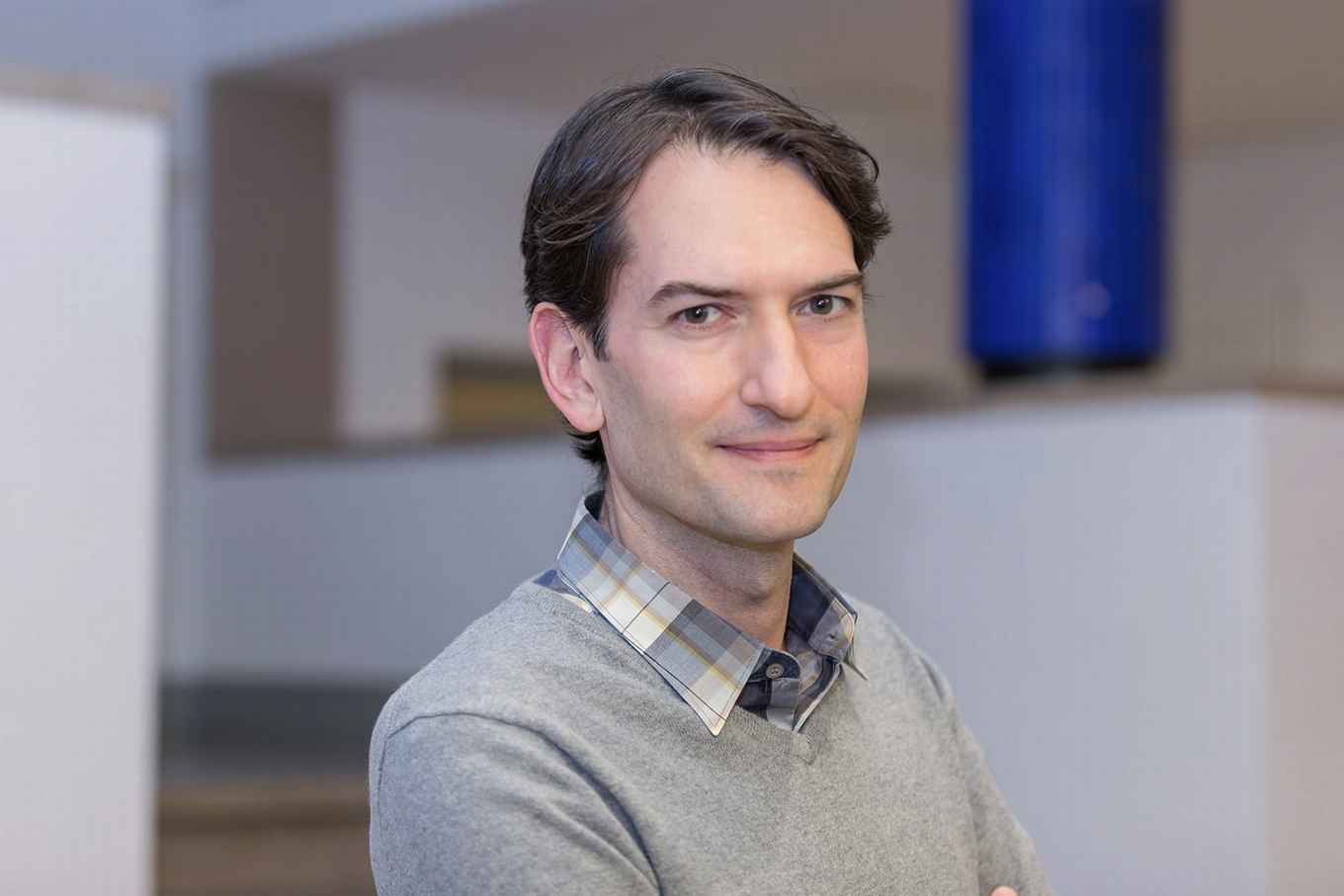David Amodio, professor of Social Psychology
2 March 2017

David Amodio’s research investigates the psychological and neural mechanisms through which we perceive and act toward other people, from the initial neural processing of a person’s face to complex decisions and interpersonal behaviours.
Research programmes
In one broad programme of work, Amodio examines the neural and cognitive bases of implicit social cognition and attitudes, as informed by the Memory Systems Model. His lab’s current work focuses on the role of instrumental learning in social cognition and attitudes, and its interface with social learning rooted in other processes (e.g., semantic association, fear conditioning), using behavioural, computational and neuroimaging methods. Through this, Amodio seeks to provide a mechanistic basis for social cognition and attitudes rooted in established systems of cognition and neural function. Such advances will help us understand how implicit biases operate, how they influence behaviour, and how they may be reduced.
A second programme of research concerns the self-regulation of social behaviour. Amodio’s early work elucidated the neurocognitive processes involved in the control of prejudice and stereotypes. Currently, his research examines proactive forms of control, in combination with reactive control, and their operations vis-à-vis social goals, emotions, and situational factors. An understanding of these self-regulatory mechanisms will inform interventions aimed at reducing social bias and increasing performance in various domains.
As professor of Social Psychology at the UvA, Amodio will – in addition to his current research – contribute to teaching and supervision within the Bachelor’s, Master’s and Research Master’s programmes in Social Psychology, with courses on Social Neuroscience, Prejudice & Stereotyping, and Social Cognition.
About Amodio
Amodio obtained a PhD in Social Psychology from the University of Wisconsin-Madison in 2003. From 2003 to 2005, he worked as a postdoctoral fellow at the University of California, Los Angeles (UCLA), studying social cognitive neuroscience and psychoneuroendocrinology. In 2005, he began a post as assistant professor at New York University, and following promotion to associate professor in 2011, he served as director of its doctoral programme in Social Psychology.
Amodio is the recipient of several research awards and fellowships, including the Presidential Early Career Award for Scientists and Engineers, the Janet T. Spence Award for Transformative Early Career Contributions, the F.J. McGuigan Young Investigator Prize, and the Early Career Award for Social Cognition. He is a Fellow of the Society for Personality and Social Psychology, the Association for Psychological Science, and the Society for Experimental Social Psychology. His research has been funded by the US National Science Foundation, including a prestigious Faculty Early Career Development Program (CAREER) grant.
A prolific author, Amodio has published extensively in prestigious journals such as Journal of Personality and Social Psychology, Nature Neuroscience, and Proceedings of the National Academy of Sciences. He has served as Associate Editor at the Journal of Personality and Social Psychology since 2012 and sits on the editorial board of various journals, including Social Psychological and Personality Science, Social Cognition, and Social Cognitive and Affective Neuroscience. In his efforts to develop and promote the field of social neuroscience, Amodio co-founded the Social and Affective Neuroscience Society in 2008 and has organised several conferences and workshops on social neuroscience in the United States and Europe.